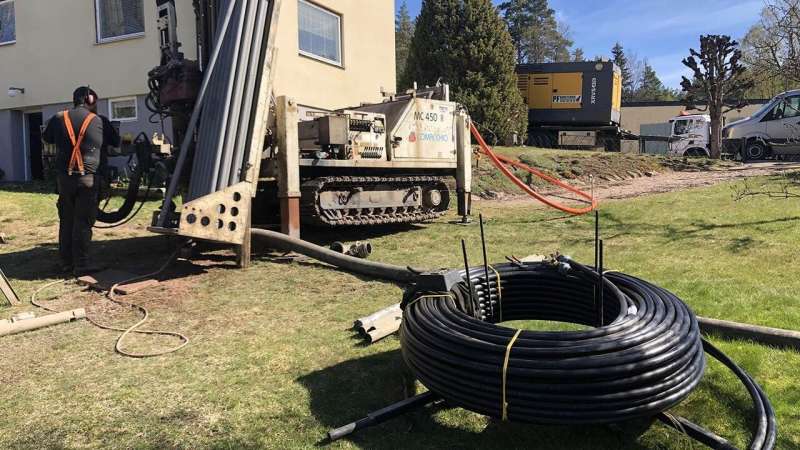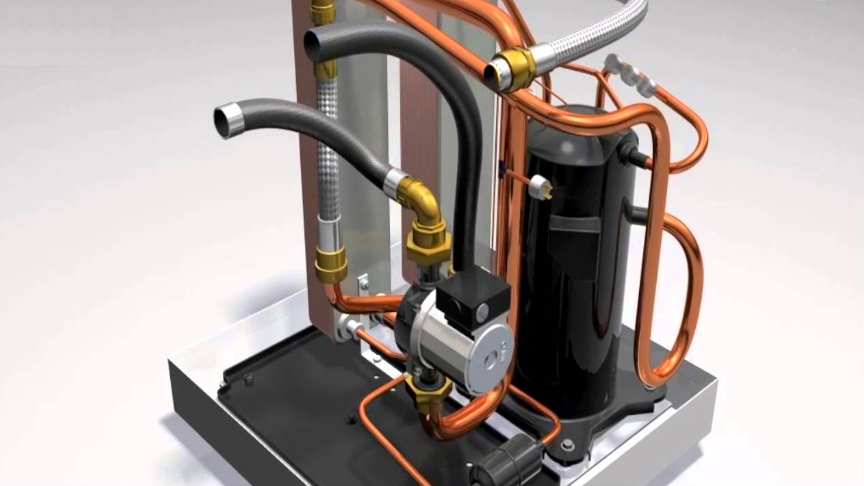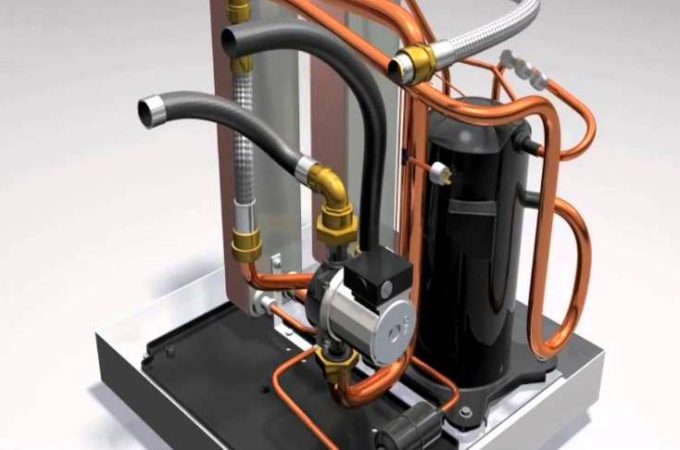Have you ever thought about the benefits of using a geothermal heat pump instead of a traditional electric heating system? What are they and how can they benefit your home or business?
The benefits of using geothermal heat pumps
A sustainable and renewable energy source that is still largely untapped is geothermal energy. It has the potential to satisfy future needs for electricity, heating, and cooling because it is an environmentally friendly resource.
A traditional electric heating system uses electricity to heat your home. This is because electricity is used to turn on a heating unit, such as an electric heater or furnace, which then heats up the air inside the house. The hot air is then circulated around the house, warming it up from within.
Electricity has some advantages over other forms of heating. It’s very cheap to run, for example, costing just $0.11 per kilowatt hour (kWh). That means that even if you use only 10% of your total electrical consumption, you’d be paying more than $1 each month. So, there’s no doubt that saving money on your monthly bills is something that most people want. Electric heating also offers instant heat, so you don’t have to wait for the heat to penetrate through the walls before it reaches your living room. However, this instant heat isn’t exactly beneficial because you might not be able to enjoy the warmth until later in the day.
maasoojuspumba hind (ground source heat pump price) provide a different type of heating. They rely on thermal energy stored deep underground. As the ground gets warmer, it releases its stored thermal energy into the atmosphere, creating a greenhouse effect that warms our homes. Geothermal heat pumps use this energy to heat your home, providing you with instant heat that doesn’t need to circulate through the walls.

You’ll find two types of geothermal heat pumps: active and passive. With an active geothermal heat pump, you will require someone to go out to the site where the heat pump is going to be installed and drill holes into the ground. Once these holes have been drilled, the heat pump will be inserted into them, allowing it to absorb the thermal energy from the ground below. Active geothermal heat pumps are generally more expensive to install, but they’re less likely to break down due to wear and tear on the moving parts.
Passive geothermal heat pumps rely on a thermal mass of rock rather than on the ground itself. These heat pumps are less susceptible to damage, but they do cost more to install. In addition, these heat pumps are less effective at heating large areas, so they may not be suitable for every household.
The pros and cons of geothermal heat pumps
There are many reasons why one would consider installing a geothermal heat pump instead of an electric heating system. Here are just a few of the major benefits.
- Instantly warm air
A good number of households struggle to keep their houses properly heated throughout the winter months. With a geothermal heat pump, you won’t have to worry about waiting for the heat to come through the walls. You can simply switch on your geothermal heat pump when you get home from work, and the instant heat will be filling your home. Even better, you can set the temperature according to your preferences. For instance, if you have young children who tend to stay too cold during the winter months, you could set the heat pump to a lower setting so that they can enjoy a nice, comfortable space.
- No need to pay more for electricity
Because geothermal heat pumps use thermal energy from the ground to heat your home, they do so without using any extra electricity to power the units. They simply use what we already put on the grid to generate electricity. As a result, you’ll save money on your monthly bill.
- Save on fuel costs
If you own a car, you probably know that gas prices are constantly rising. When you factor in the amount of extra fuel that you burn driving to and from work every day, having a geothermal heat pump can help you cut your overall fuel consumption by a considerable percentage.
- Use the right kind of heating system
While geothermal heat pumps can provide instant heat, they aren’t the best option for everyone. For instance, if you live in a region that experiences very low temperatures, you may not be able to use a geothermal heat pump. Instead, you’d be better off investing in a wood pellet stove or oil boiler. However, if you live somewhere that’s close to the Equator, then geothermal heat pumps will be much more efficient than anything else.
- Choose the right size system
Before deciding whether or not to invest in a geothermal heat pump, you should always take into consideration the size of your home. Most systems range between 30 and 60 kWh/month, depending on the type of system you decide to purchase.
- Get the maximum efficiency
Geothermal heat pumps can offer the best level of efficiency available today. The United States Department of Energy reported that geothermal heat pumps were able to achieve a rating of 14 GigaWatts per Kilogram (GW/kg) in 2011. This is significantly higher than the 12 GW/kg achieved by conventional electric heaters.
If you think that geothermal heat pumps are a great solution for heating your home, there are still certain questions that you need to answer first. Here are three main issues that you should address.
How long would I have to wait for the heat to reach my home?
When you choose a geothermal heat pump, you should understand that it will take some time before the heat reaches your home. Depending on where you live, this process can vary greatly. For example, if you live in a colder region, you’ll need to wait longer for the heat to reach your home. On the other hand, if you live in a warmer location, you’ll start to feel the heat almost immediately after switching on your geothermal heat pump.
How much will the system cost me?
Geothermal heat pumps can be quite expensive to install. To make matters worse, geothermal heat pumps are often required to undergo an inspection before they can be installed. In addition, homeowners are usually required to sign a contract stating that they will maintain the system over the course of the next 25 years.
Will the system last forever?
In order to be considered reliable, geothermal heat pumps must meet certain standards set by the American Society of Heating Refrigeration and Air Conditioning Engineers (ASHRAE). One of these standards states that a geothermal heat pump must be able to operate for at least 5 years without requiring repairs. In fact, this standard was created specifically for geothermal heat pumps. Although geothermal heat pumps do need maintenance, it’s typically nothing serious.

If you’re ready to move forward with purchasing a geothermal heat pump, you’ll find a wide variety of models available online. Some companies specialize in providing heat pumps to residential customers while others focus primarily on commercial properties. If you’re unsure about which model to buy, you should consider asking a professional for advice.
In conclusion, geothermal heat pumps represent a great investment for those who live in regions that experience extreme weather conditions. With minimal effort, you can easily reduce your electricity bills while keeping your home warm and comfortable all year round.













